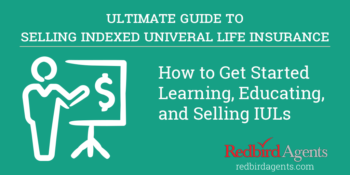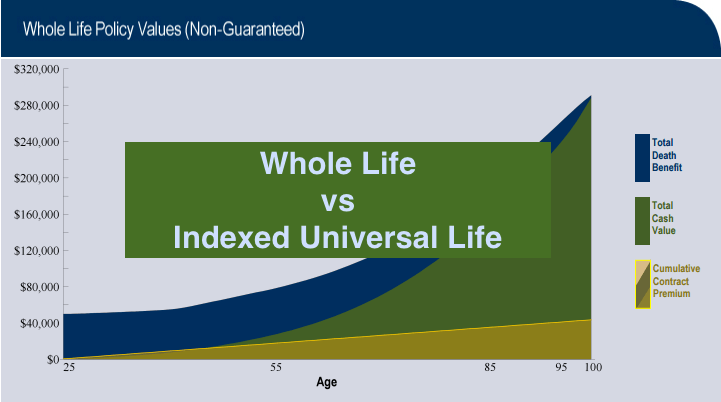All Categories
Featured
Table of Contents
1), often in an attempt to beat their group standards. This is a straw guy disagreement, and one IUL individuals enjoy to make. Do they compare the IUL to something like the Lead Total Amount Stock Market Fund Admiral Shares with no lots, an expense ratio (ER) of 5 basis factors, a turnover ratio of 4.3%, and an exceptional tax-efficient document of distributions? No, they contrast it to some awful actively managed fund with an 8% tons, a 2% ER, an 80% turnover proportion, and a terrible document of temporary resources gain distributions.
Mutual funds typically make yearly taxed distributions to fund proprietors, even when the worth of their fund has decreased in value. Common funds not only need earnings coverage (and the resulting annual taxation) when the mutual fund is rising in worth, yet can likewise enforce earnings tax obligations in a year when the fund has gone down in worth.
You can tax-manage the fund, harvesting losses and gains in order to lessen taxed distributions to the financiers, yet that isn't somehow going to transform the reported return of the fund. The possession of mutual funds might need the shared fund proprietor to pay projected tax obligations (universal life vs whole life which is better).

IULs are simple to place to make sure that, at the proprietor's fatality, the recipient is not subject to either earnings or inheritance tax. The very same tax obligation reduction strategies do not work nearly too with mutual funds. There are various, often pricey, tax obligation catches connected with the moment purchasing and marketing of common fund shares, catches that do not use to indexed life insurance policy.
Possibilities aren't extremely high that you're going to be subject to the AMT because of your mutual fund circulations if you aren't without them. The remainder of this one is half-truths at ideal. For instance, while it holds true that there is no earnings tax obligation because of your heirs when they inherit the profits of your IUL plan, it is likewise real that there is no revenue tax as a result of your heirs when they inherit a common fund in a taxed account from you.
What Is The Difference Between Universal And Whole Life Insurance
There are better means to prevent estate tax obligation concerns than purchasing financial investments with low returns. Shared funds might create revenue tax of Social Safety and security benefits.

The development within the IUL is tax-deferred and might be taken as tax cost-free revenue by means of finances. The policy proprietor (vs. the shared fund supervisor) is in control of his/her reportable earnings, thus enabling them to decrease or also remove the taxation of their Social Security benefits. This one is fantastic.
Below's an additional marginal concern. It's real if you get a mutual fund for state $10 per share right before the circulation date, and it distributes a $0.50 distribution, you are after that mosting likely to owe tax obligations (probably 7-10 cents per share) despite the reality that you haven't yet had any kind of gains.
In the end, it's really about the after-tax return, not just how much you pay in tax obligations. You're additionally most likely going to have even more money after paying those tax obligations. The record-keeping needs for having mutual funds are substantially a lot more complicated.
With an IUL, one's records are kept by the insurer, duplicates of yearly declarations are mailed to the owner, and circulations (if any kind of) are completed and reported at year end. This one is additionally type of silly. Naturally you need to maintain your tax obligation documents in situation of an audit.
Iul Reviews
Barely a reason to acquire life insurance coverage. Common funds are generally component of a decedent's probated estate.
Furthermore, they are subject to the hold-ups and expenses of probate. The proceeds of the IUL plan, on the other hand, is always a non-probate distribution that passes beyond probate directly to one's named beneficiaries, and is consequently exempt to one's posthumous lenders, unwanted public disclosure, or comparable hold-ups and expenses.
Medicaid incompetency and lifetime revenue. An IUL can supply their owners with a stream of income for their whole life time, regardless of just how long they live.

This is valuable when organizing one's events, and transforming properties to revenue before an assisted living facility arrest. Common funds can not be converted in a similar fashion, and are generally considered countable Medicaid assets. This is an additional foolish one promoting that bad individuals (you recognize, the ones that need Medicaid, a government program for the bad, to spend for their retirement home) ought to utilize IUL rather of common funds.
Universal Insurance Logo
And life insurance coverage looks dreadful when contrasted relatively versus a pension. Second, people who have cash to acquire IUL over and beyond their retired life accounts are mosting likely to need to be dreadful at managing money in order to ever before receive Medicaid to spend for their retirement home costs.
Persistent and incurable disease cyclist. All policies will certainly enable an owner's easy access to cash money from their plan, frequently forgoing any abandonment fines when such people experience a severe ailment, need at-home treatment, or come to be restricted to a retirement home. Mutual funds do not provide a comparable waiver when contingent deferred sales costs still relate to a common fund account whose owner needs to market some shares to fund the expenses of such a remain.
Iul Insurance Calculator
You get to pay even more for that advantage (motorcyclist) with an insurance plan. What a terrific deal! Indexed universal life insurance provides death advantages to the recipients of the IUL owners, and neither the proprietor neither the beneficiary can ever before shed money due to a down market. Mutual funds provide no such guarantees or survivor benefit of any kind.
Now, ask on your own, do you really require or want a fatality advantage? I absolutely do not need one after I reach economic freedom. Do I want one? I intend if it were affordable enough. Of course, it isn't cheap. Typically, a purchaser of life insurance coverage spends for real cost of the life insurance policy advantage, plus the costs of the plan, plus the profits of the insurance coverage firm.
Iul Life Insurance Pros And Cons
I'm not entirely sure why Mr. Morais threw in the entire "you can't shed cash" once more right here as it was covered quite well in # 1. He just wanted to duplicate the very best selling point for these points I expect. Again, you don't lose nominal bucks, however you can shed real bucks, along with face significant possibility expense because of reduced returns.

An indexed global life insurance policy plan proprietor might exchange their policy for a completely various policy without setting off earnings tax obligations. A mutual fund owner can not relocate funds from one mutual fund business to one more without selling his shares at the former (hence causing a taxed occasion), and redeeming brand-new shares at the last, frequently based on sales costs at both.
While it is true that you can exchange one insurance coverage for an additional, the reason that individuals do this is that the very first one is such a horrible policy that also after buying a new one and experiencing the very early, negative return years, you'll still appear ahead. If they were sold the best policy the very first time, they shouldn't have any wish to ever before exchange it and go through the very early, negative return years again.
Latest Posts
Indexed Whole Life Insurance Policy
Index Universal Life Calculator
Universal Life Guaranteed Death Benefit